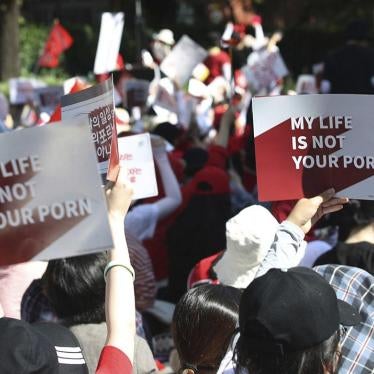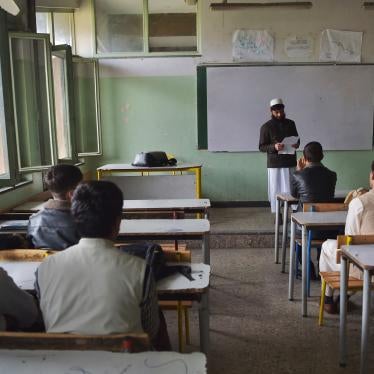On November 26, a horrifying episode in South Korea neared its end when a court in Seoul sentenced Cho Joo-bin to 40 years in prison. Cho ran a network of online chat rooms on Telegram, where he and several accomplices shared videos of sexual violence they inflicted on women and girls under threat of blackmail. Thousands of people had paid to watch them.
Cho’s sentence stands in stark contrast to other prosecutions in South Korea for online gender-based violence, in which perpetrators often escape with a fine. The sentence gives hope to activists that the courts may be ready to take these crimes more seriously.
Sentencing should reflect the devastating impact of online image-based abuse. But much more is needed to stem the alarming prevalence of these crimes in South Korea and elsewhere.
Survivors of online gender-based violence need services, including psychosocial support and legal assistance navigating the criminal system and seeking damages from perpetrators. Authorities should ensure abusive materials are removed and blocked from the internet. The South Korean government has been an innovator by creating a center to assist survivors, but these services should be expanded to reach all survivors, including those most marginalized.
Most importantly, South Korea needs to end its deep gender inequity. In the 2020 World Economic Forum ranking of countries by gender gap, South Korea ranked a dismal 108 out of 153 countries, with the largest gap on economic participation and opportunity of any advanced economy. On percentage of women in leadership roles, South Korea ranked 142—among the worst in the world.
A survivor of Cho’s abuse told the court, “I am wondering if he had ever thought about the victims as real human beings." Ending online gender-based violence requires more than services and sentences—it requires deep cultural change to end discriminatory norms that deny women and girls’ humanity.
Providing comprehensive sexuality education for all children covering consent, gender equity, healthy relationships, and responsible digital citizenship is one important step. The South Korean government should also take a hard look at barriers to women accessing leadership roles in the government and private sector, such as discriminatory norms, inequitable family leave, and workplace harassment and discrimination. If more women were leaders in South Korea, they could be the ones leading the response to online-gender based violence.








